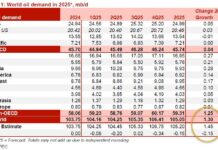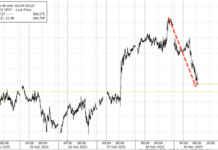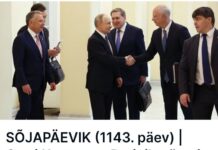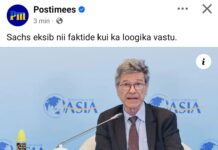Polish Foreign Minister Radek Sikorski made a pro-Ukrainian appeal to the American people while talking with Fareed Zakaria on Sunday. The gist was that their country will lose its credibility if Congress doesn’t pass another Ukrainian aid package since it would undermine faith in the US after Biden infamously pledged “to do whatever it takes for however it long it takes” to strategically defeat Russia. His rhetoric is easily debunked though since nobody should have ever taken those words at face value.
They were always aimed at boosting Ukrainian morale and galvanizing Western unity with the intent of encouraging the rest of that bloc to follow America’s lead. After the counteroffensive failed, allied support waned once it became impossible to maintain the false narrative of Kiev’s “invincibility”, which was peddled over the prior 18 months for misleading the public into supporting this proxy war. Upon that happening, many folks became apathetic, and some even reversed their stance towards the conflict.
Furthermore, few are falling for anti-Russian fearmongering after realizing that this country doesn’t pose any credible threat to NATO if it can’t even expel Ukraine from the entirety of Donbass despite two years of trying, thus discrediting Sikorski’s claim that Russia wants to turn Poland back into a “colony”. His host prompted him to put an anti-Trump spin on everything too by asking him about the former President’s comments about NATO, which he said risk emboldening Russia and undermining European confidence.
According to Sikorski, it’s their confidence in Article 5 – namely that America will intervene in defense of its fellow allies in the event that they’re attacked – which is the most important part of NATO, and this is supposedly threatened after what Trump said. Not only that, but Poland’s top diplomat also added that East Asians might wonder whether America will intervene in their defense if they’re also attacked, which was an allusion to anti-Chinese fearmongering and plans to build a so-called “Asian NATO” via AUKUS+.
What he deliberately omitted to mention is that the US doesn’t have legal mutual defense obligations to Ukraine like it does to NATO members and those East Asian countries like Japan and South Korea with whom it has similar agreements. The same goes for Taiwan, which isn’t a country unlike Ukraine, yet Sikorski wants to muddle everything in the American people’s minds in order to mislead them into pressuring their lawmakers on Ukraine aid out of fear that the US will lose its credibility if it doesn’t pass.
Left unsaid is the fact that the West’s military-industrial wherewithal is a lot weaker than expected after this bloc ran through almost all of its stockpiles in just two years’ time without inflicting their hoped-for strategic defeat on Russia. To the contrary, Russia’s resilience in the face of last summer’s counteroffensive enabled it to actually gain ground by the end of the year, thus ironically inflicting a strategic defeat on the West by exposing the hollowness of its military-industrial complex and planning.
Since Russia already won the “race of logistics”/“war of attrition” with NATO by far, no amount of money is going to make a difference in reshaping these dynamics since it’s all about weapons production, not financing. Russia is simply out-producing the entire West, which is why it’s gradually gaining ground instead of retreating, though the pace with which it’s advancing has been very slow due to Ukraine’s NATO-built defenses over the past decade and its suicidal “meat wave” tactics in major battles.
Without realizing it, Sikorski is doing more to discredit the US than Congress’ failure to pass the latest aid package since he’s getting some people’s hopes unrealistically high about the possibility of defeating Russia only for them to inevitably be disappointed no matter whether or not it passes, while Congress’ approach implies tacit recognition of reality. Russia’s victory in Avdeevka reinforces the fact that the West can’t win, yet the Polish Foreign Minister still keeping up the charade with his psychological games.
The most “pro-Ukrainian” policy that the West can implement is therefore forcing Kiev to resume negotiations with Russia aimed at reaching a pragmatic compromise on the Kremlin’s security guarantee requests in light of the new military-strategic reality two years after the special operation began. That would alleviate the immense hardships that Zelensky is forcing his people to bear in pursuit of the abovementioned delusional goal, though it’ll likely still be some time before everything finally ends.
























